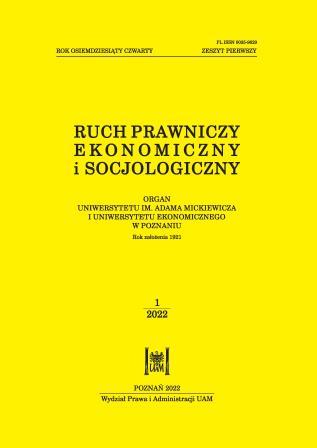In between: on the defensive reactivity of public institutions in Poland to the COVID-19 pandemic
In between: on the defensive reactivity of public institutions in Poland to the COVID-19 pandemic
Author(s): Rafał Drozdowski, Marek Krajewski, Piotr Luczys, Małgorzata KubackaSubject(s): Politics / Political Sciences, Social Sciences, Civil Society, Governance, Public Administration, Public Law, Sociology
Published by: Uniwersytet Adama Mickiewicza
Keywords: everyday life sociology; public institutions; expert interviews; Poland;COVID-19;
Summary/Abstract: This paper discusses a research project that attempted to examine selected public institutions' response strategies to a pandemic. The most important research question of the project was the relationship between the pandemic and innovativeness of the sector of public institutions (understood as the desire to introduce new ways of operating, new inter-institutional links, new patterns of relations with stakeholders, etc., resulting from the knowledge provided to individual institutions by functioning under the conditions of the pandemic). During qualitative research we found that the researched institutions' predominant reaction to the challenges of the pandemic was not an orientation towards innovation but a striving to maintain a mode of functioning that is as similar as possible to that from before the pandemic. The innovations made (transition to remote working, simplification of some administrative procedures) resulted from external pressure to a greater extent and internal reflexivity to a lesser extent. The narratives captured in the study about the everyday life of public institutions during the pandemic have three common elements. First, they all focus less on large and spectacular innovations and more on micro-innovations (not treated as innovation, but understood as dozens of micro-improvements, minimal adjustments to existing routines). Second, they all miniaturize the experience of the pandemic, regarding it as events so extreme as to be useless for designing a better institutional order. Thirdly, all the reconstructed narratives are situated in an institutional zone of in-between, which means that they perceive themselves as a transparent medium fluctuating between the state and society and as a subject without influence on the shape of its own functioning. On the one hand, this would depend on the level of civic culture and, on the other hand, on the policy created at the highest levels of the state.
Journal: Ruch Prawniczy, Ekonomiczny i Socjologiczny
- Issue Year: 84/2022
- Issue No: 1
- Page Range: 229-246
- Page Count: 18
- Language: English

